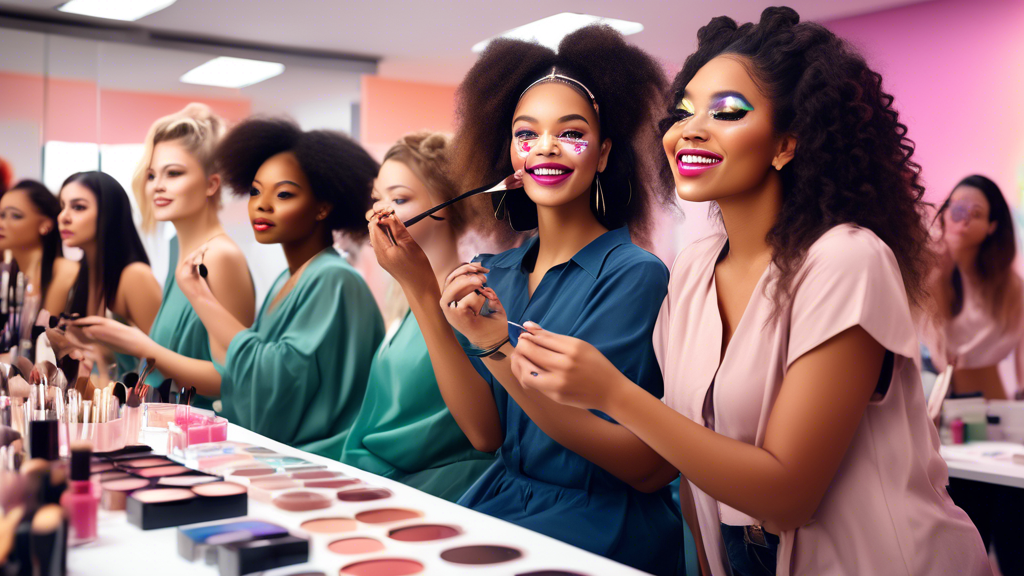The beauty industry is a vibrant and ever-evolving field that offers numerous opportunities for personal and professional growth. Whether you're an aspiring makeup artist, a seasoned beauty technician looking to enhance your skills, or someone who simply enjoys dabbling in cosmetics for personal satisfaction, enrolling in cosmetic courses can provide the knowledge and expertise needed to excel in this dynamic industry. This guide will walk you through the various types of cosmetic courses available, what to expect from them, and tips for choosing the right one.
Types of Cosmetic Courses
The beauty industry encompasses a wide range of specialties, each requiring specific skills and techniques. Here are some of the most popular types of cosmetic courses:
1. Makeup Artistry
Makeup artistry courses teach students the fundamentals of applying makeup for various occasions, such as everyday wear, special events, theatrical performances, and photo shoots. Topics often include color theory, contouring, blending techniques, and the use of different products and tools. Advanced courses may cover specialized areas such as bridal makeup, high-definition makeup, and special effects makeup.
2. Skincare and Aesthetics
Skincare courses focus on the science of skin health and beauty. These courses typically cover skin anatomy, common skin conditions, and the use of skincare products and treatments. Aesthetics programs often include training in facials, chemical peels, microdermabrasion, and other advanced skincare techniques. These courses are ideal for those looking to become estheticians or skincare specialists.
3. Hair Styling and Haircare
Hair styling courses teach students the art of cutting, coloring, and styling hair. Topics may include different hair cutting techniques, chemical treatments, hair extensions, and updos. These courses can range from basic hairstyling to advanced techniques used in professional salons. Haircare courses often cover scalp treatments and the use of hair care products to maintain healthy hair.
4. Nail Technology
Nail technology courses focus on manicures, pedicures, nail art, and artificial nail enhancements. Students learn about nail anatomy, proper hygiene practices, and the use of various tools and products. Advanced courses may include gel and acrylic nail techniques, as well as intricate nail art designs.
5. Permanent Makeup and Microblading
Permanent makeup courses cover the techniques for applying long-lasting cosmetic tattoos to enhance features such as eyebrows, eyeliner, and lips. Microblading, a popular form of permanent makeup, involves creating fine, hair-like strokes to simulate natural eyebrow hairs. These courses require a high level of precision and artistry.
What to Expect from Cosmetic Courses
When enrolling in cosmetic courses, students can expect a combination of theoretical knowledge and hands-on practice. Most courses include:
1. Classroom Instruction
Instructors provide lectures on various topics, including anatomy, product knowledge, and safety protocols. This theoretical foundation is essential for understanding the principles behind different beauty techniques.
2. Practical Training
Students get the opportunity to practice their skills on live models or mannequins. This hands-on experience is crucial for developing proficiency and confidence in performing beauty treatments.
3. Industry Certification
Many courses offer certification upon completion, which can enhance your credibility and marketability in the beauty industry. Accredited institutions often provide recognized certifications that can open doors to new career opportunities.
Tips for Choosing the Right Cosmetic Course
With so many options available, selecting the right cosmetic course can be overwhelming. Here are some tips to help you make an informed decision:
1. Define Your Goals
Consider what you hope to achieve by taking the course. Are you looking to start a new career, advance in your current job, or simply learn a new skill? Your goals will help guide your choice.
2. Research the Institution
Look for accredited institutions with a good reputation in the beauty industry. Check reviews, ask for recommendations, and visit the campus if possible to get a sense of the learning environment.
3. Review the Curriculum
Make sure the course curriculum covers the topics you're interested in and offers comprehensive training. Some programs may offer specializations or electives that align with your career goals.
4. Consider the Cost
Compare the costs of different courses and consider any additional expenses, such as supplies or certification fees. Some institutions offer financial aid or payment plans to help ease the financial burden.
5. Seek Mentorship Opportunities
Learning from experienced professionals can provide invaluable insights and guidance. Look for courses that offer mentorship or networking opportunities within the beauty industry.
Unlocking your beauty skills through cosmetic courses is a rewarding journey that opens up numerous possibilities. Whether you dream of working in a high-end salon, starting your own beauty business, or simply perfecting your personal beauty routine, the right training can set you on the path to success. With dedication and a passion for beauty, you can turn your skills into a thriving career in this exciting industry.

